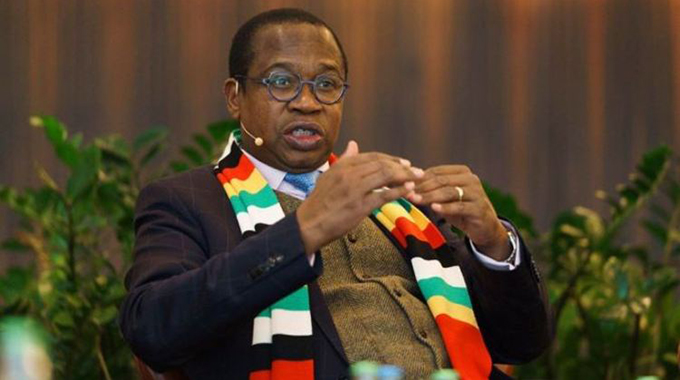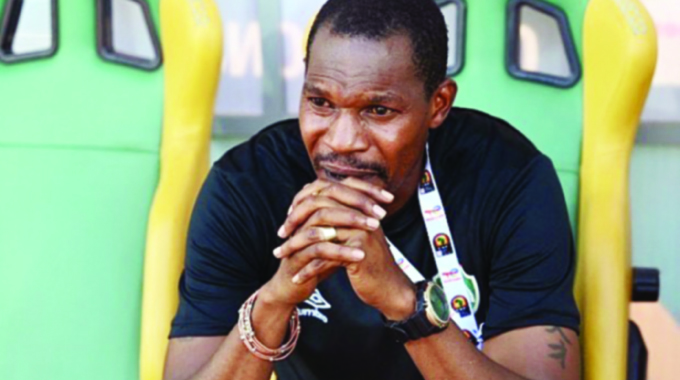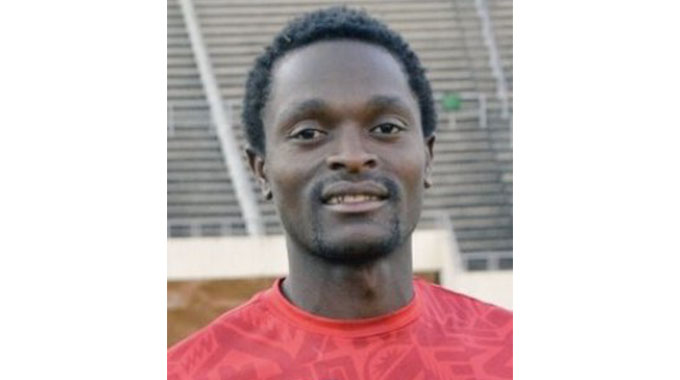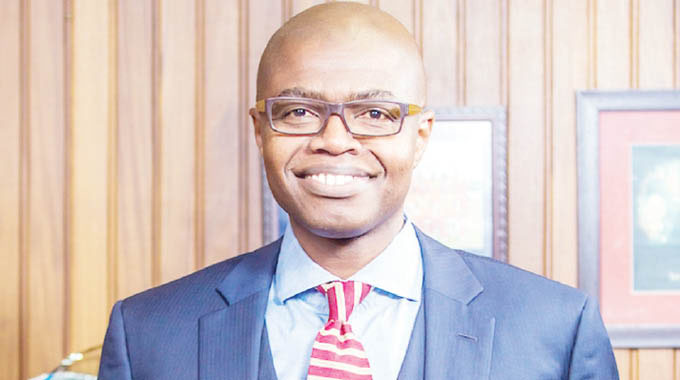Robson Sharuko on Saturday: Don’t worry Charlie, it’s the same game that also forgot to honour a legend called Hanot

HAD he lived to this day, Gabriel Hanot would have celebrated his 130th birthday last month on November 6.
It’s not a wild wish since Frenchwoman Jeanne Calment lived to the age of 122 years 164 days by the time she died on August 4, 1997.
And, ironically, Hanot, was a Fenchman.
Hailed by many as a genius, Hanot was working for France Football magazine, and also edited the influential sports newspaper L’Equipe when he conceived an idea that has stood the test of time.
He was the man who first thought of the Ballon d’Or, which originally was exclusively for players from Europe.
The rigid rules meant Diego Maradona’s exploits at Napoli were ignored because he was from Argentina, while Romario’s success story at Barcelona couldn’t win him the award simply because he was Brazilian.
But, changes were effected in 1995 for the award to be given to footballers from elsewhere and, 10 years later, the rules were again changed for national team coaches and captains to also cast their votes to determine the winner.
A former footballer, whose career was cut short by an aviation accident, he then also played an influential role in the formation of the UEFA Champions League.
Jacques Ferran, a fellow French journalist, covered the Copa Libertadores in Santiago, Chile in 1948, and after being impressed by the tournament, came back home with an idea of having one in Europe.
He took the idea to his boss, Hanot, and the two began working on proposals which they then submitted to UEFA for consideration.
Today, at the headquarters of the European football governing body in Nyon, Switzerland, you will see confirmation that Hanot and Ferran — the two French journalists — were the founding fathers of the Champions League.
Just like our Soccer Stars of the Year, the Ballon d’Or has had its fair share of controversy, and English clubs have always claimed the process gives them a raw deal.
“Dalglish not winning a Ballon d’Or is a sporting scandal, a player winning 10 league titles, six national cups and three European Cups, it can be called nothing else,’’ the guys at www.football.co.uk, argued.
“There has to be bias against English teams in the voting. After George Best won the crown in 1968, no player representing an English team had claimed the award until Michael Owen in 2001. Cristiano Ronaldo won it in 2008. Why didn’t Henry win it? Or Bergkamp? Cantona?”
And, just like our Soccer Star of the Year awards, which celebrated their Golden Jubilee last Friday, it will always carry the burden of controversy.
Here, we will always ask how was it possible someone like Joseph Zulu did not win this award?
How people like Madinda Ndlovu, Stanford “Stix’’ Mtizwa, Onias Musana, William Sibanda, David Mwanza, Posani Sibanda, Nyaro Mumba, Vitalis Takawira, Willard Mashinkila-Khumalo, Derby Mankinka, Friday Phiri, Joel Shambo, Kenneth Jere, Edward Katsvere didn’t get a chance to win this award?
It’s just like the Ballon d’Or where only one goalkeeper, Lev Yashin, and just three defenders (Franz Beckenbauer, Matthias Sammer and Fabio Cannavaro) have won this award before?
What about Paolo Maldini (1994) and Roberto Carlos (2002), weren’t they worthy recipients of this award?
UEFA’S REUNION PARTY IN BERLIN, ZIM FOOTBALL’S REUNION PARTY IN HARARE
Four years ago, the 22 clubs which have won the UEFA Champions League and its predecessor the European Champions Cup, were honoured by the European football governing body at a ceremony in Berlin, Germany.
The occasion was to celebrate the 60th anniversary of Europe’s most prestigious inter-club football competition.
Michel Platini, then the UEFA president, presented the 22 clubs with a framed plaque containing the original handwritten draft notes which were drawn up by Ferran for the establishment of the competition.
AC Milan, AFC Ajax, Aston Villa FC, FC Barcelona, FC Bayern München, SL Benfica, Borussia Dortmund, Celtic FC, Chelsea FC, FK Crvena zvezda, Feyenoord, Hamburger SV, FC Internazionale Milano, Juventus, Liverpool FC, Manchester United FC, Nottingham Forest FC, Olympique de Marseille, FC Porto, PSV Eindhoven, Real Madrid CF and FC Steaua București were honoured.
The past, the present and the future of this great competition coming together under one roof in Berlin to be honoured for their achievements.
As I watched the Golden Jubilee awards on Friday night from a distance in my office, I could feel they were quite a spectacle and probably not as glitzy as UEFA reunion show four years ago, but a fine show all the same.
If there was a negative element to the show, then it must have been the way the function kept dragging on and on, too long for a function made for a live television audience, and after starting at about 6pm, we still didn’t even know the Soccer Star of the Year by midnight.
But, all the same, it felt good to see the past, the present and the future of Zimbabwean football under one roof.
The great George Shaya representing its golden past, the impressive Prince Dube representing its present and the Kabila Mbemba representing its future.
It felt good, too, to see faces from the past like Cecil Gombera, one of the unsung heroes of our game, who — during his time as the Delta marketing director — came up with a number of initiatives to boost domestic football and lay a firm foundation for the company’s marriage with football.
A good guy, if ever there was one, this Cecil — an unapologetic Leeds United fan, who tells everyone who cares to listen that he was also born to be a Dynamos supporter — took his audience down memory lane back to the days when local stadiums would be filled to capacity as early as midday when fans came to watch the juniors before the main menu.
He said his biggest wish before he dies was to see the iconic Castle Cup being brought back onto the landscape of the domestic Premiership.
HANOT, CHARLES MABIKA, EVANS MAMBARA, CHOGA TICHATONGA GAVHURE
But, there is something some analysts observed at that UEFA reunion in Berlin four years ago, which I also observed at the domestic Premiership’s reunion party in Harare on Friday night.
Back in Berlin in 2015, no one remembered to honour both Hanot and Ferran that night as European football celebrated the coming to age of a tournament the French duo had established.
But, those UEFA bosses were not the only ones at fault.
After all, the visionary football writer was also forgotten in his homeland.
“You would think that such an extraordinary man, a towering figure who shaped the French and European game more than any other individual in the 20th century, and did it so wisely, so forcefully, so imaginatively, would be celebrated in his own country,’’ noted The Blizzard newsletter.
“No street, no school, no stadium bears his name. Forty-six years after his death at the age of 77, no statue has yet been erected in the city where he was born.
“No portrait or photograph of the visionary greets the visitor at the headquarters of L’Équipe and France Football in Boulogne-Billancourt.
“And, if you think that is a pretty poor show, wait for this: the official website of the French FA gives his date of birth as 13 December 1901. Hanot was, therefore, six years old when he earned the first of his 12 caps for France.’’
And, it’s something I also noticed on Friday night.
Charles Mabika, the voice of Zimbabwean football, who has covered the game as a radio commentator, television pundit and blogger for this newspaper, was not even honoured for his work stretching about 40 years now, at that Golden Jubilee awards ceremony.
The very man whose voice helped shape, and celebrate the careers of those who were being honoured that night didn’t even get a small shield as a token of appreciation for all that he has done for this game.
The very man who brought the names of many of these stars, who were being honoured that night, into the homes of millions of Zimbabweans, was never accorded the honour he deserved on the occasion, as someone whose input had shaped what was being celebrated that day.
He now calls himself “CNN”, has barely changed from the man this game has known all along — same voice, same Afro hair style which is a throwback to the ’70s when the Jackson Five were emerging on the global music scene, same smile — Charlie deserved something that night.
And, so did the likes of the late Evans Mambara, as good a football commentator as they will ever come, posthumously to show that, even in his absence, we have never forgotten the role he played to shape what was being celebrated that day.
So did Allan Hlatywayo, who like Hanot, was a fine footballer good enough to play for Dynamos before he branched into journalism to become the first black Sports Editor of this newspaper, who covered the stories of Shaya and company like no other writer has done.
That he was the first black journalist to edit the sports section in this newspaper’s 128-year history, which for those legends honoured last Friday was the medium for their exposure, should, at least, have boosted his appeal for recognition.
Only three black journalists have had the honour of editing this newspaper’s sports section.
They should have honoured the late Assel Gwekwerere, the late Tinaye Garande, the fine duo who edited the sports section of The Sunday Mail, and shaped the careers of the likes of Makomborero Mutimukulu.
What about the late Lovemore Musharavati, if not for his eccentricity, then for his sheer brilliance in bringing the stories about Rio Tinto back in the day when this club was a giant, into the spotlight.
No one even mentioned Ephraim Masiwa, who is also late, but was a writer-par-excellence, whose beautiful work shaped the sport to be what was being celebrated that night.
There wasn’t even a mention of Glen Byrom or Tommy Ballantyne, two fine journalists who contributed immensely to the history of the local game.
You would think, even if they didn’t value the work that Ballantyne did, to record the stories created by the likes of Peter Nyama and George Shaya, they would, at least, mention him for what he did before he became a football writer — the only player to score a hattrick against legendary English goalkeeper Gordon Banks.
That was during a tour match between the then Southern Rhodesia national team and Leicester City, when the Flying Foxes came to Bulawayo in May 1961, and Ballantyne scored a hattrick in that match.
The same Banks, who nine years later, at the 1970 World Cup finals in Mexico, would produce what is now widely regarded as the finest save by a goalkeeper when he twisted his frame to keep out a header from the great Pele.
It’s impossible to forget that game in Bulawayo because, after all, it marked the first time a black local footballer, Obadiah Sarupinda, featured in a national team match for this country.
But, maybe, that’s what we are as a people, anything else won’t be a true reflection of our DNA.
After all, even on that glitzy Friday night, we are the people , who somehow, without any ounce of respect, found it okay to summon an old man like George Shaya, for whom walking with that metal aid has become such a very difficult thing these days, to come to the main stage to receive his awards.
Why didn’t we simply accord him the respect he deserved, and also acknowledge the challenges he now faces when simply walking, by taking those awards to where he was seated and handing them over to him while he remained rooted in his seat?
But then, this is the same game that also forgot Gabriel Hanot.
To God Be The Glory!
Peace to the GEPA Chief, the Big Fish, George Norton and all the Chakariboys in the struggle.
Come on United!!!!!!!!!!!!!!!!!!!!!!!!!
Ole, Ole, Ole, Ole, Ole, Ole, Ole Ole!
Text Feedback — 0772545199
WhatsApp — 0772545199
Email — [email protected], [email protected]
You can also interact with me on Twitter — @Chakariboy, Facebook, Instagram — sharukor and every Wednesday night, at 9.45pm, when I join the legendary Charles “CNN’’ Mabika and producer Craig “Master Craig’’ Katsande on the ZBC television magazine programme, “Game Plan”.







Comments